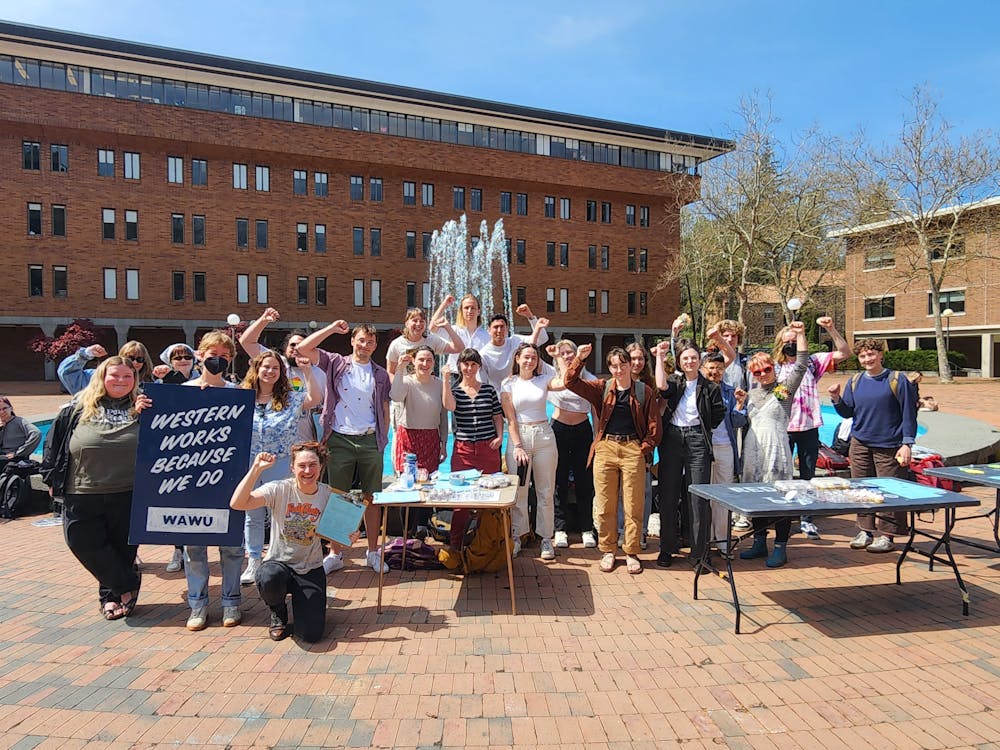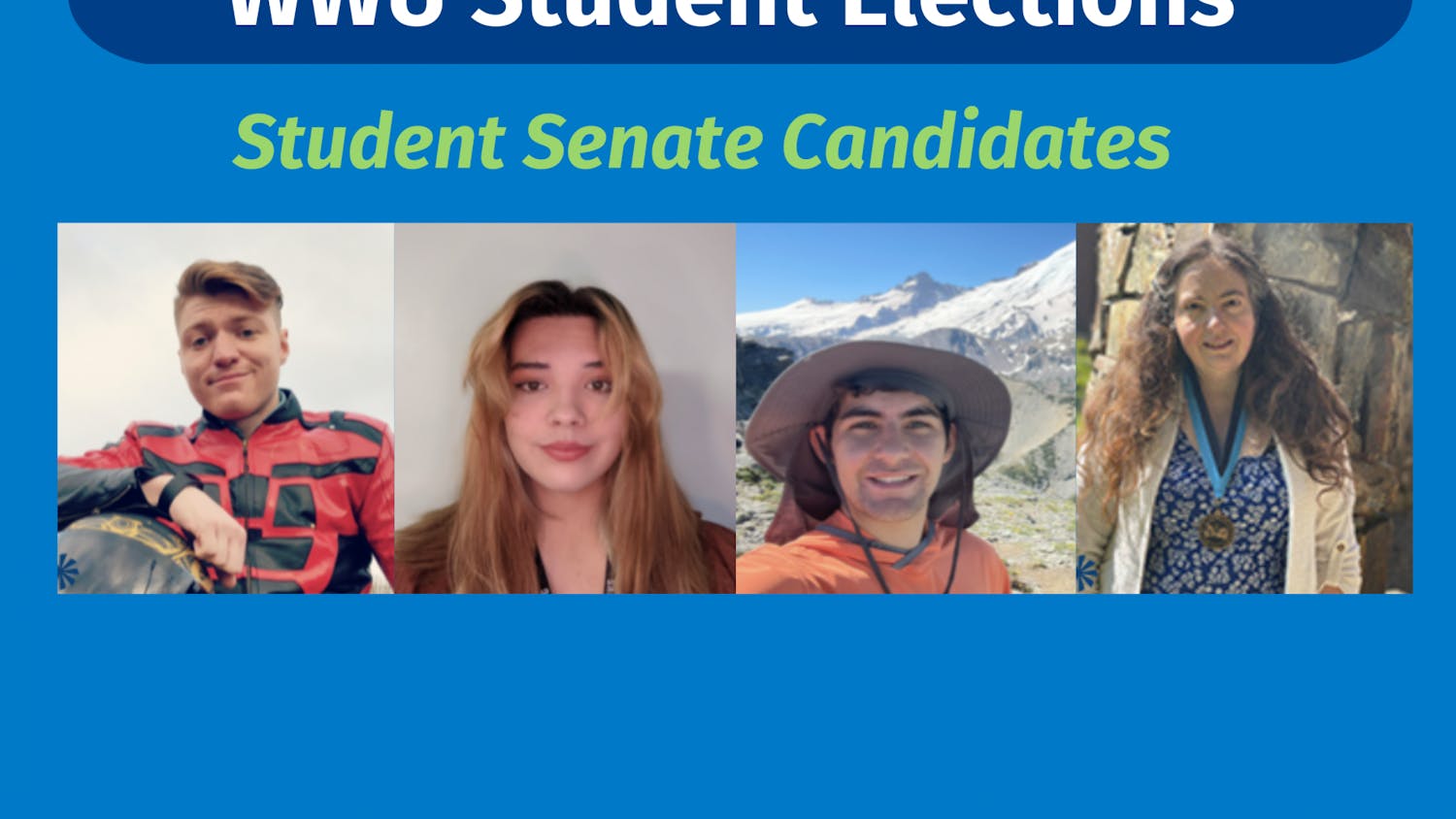On May 2, members of Western Academic Workers United gathered in Red Square to announce their campaign to unionize Operational Student Employees at Western Washington University.
This will be the second unit under WAWU and includes recycling center workers, lifeguards, clerks, editors and the many other jobs that more than 1,500 Western students fulfill.
Under the two units of WAWU, operational and educational, all students employed by the university have now filed to unionize. This staff includes almost 3,000 employees in total, compared to Western faculty which is comprised of less than 1,000 total employees.
If they receive official union certification, this will be the first operational student-employee union in Washington State.
“If we do this right, this sets good precedent for other operational students to organize in their workplace and improve their working conditions,” said Elias Medley, a WAWU member, recycling center operations manager and a third-year student at Western.
Student workers at Washington State University, WSU-CASE and the University of Washington, under UAW 4121, have already been certified as unions and have begun bargaining with their respective universities, but only for academic student employees - teaching assistants, research assistants, graders, tutors, postdocs, and academic researchers.
“Bringing new student populations into the movement would increase WAWU’s strength and ability to win rights and protections for its academic employee population, which raises the bar for [Academic Student Employees] here at WSU,” said Carla De Lira, a PhD candidate at WSU and member of WSU-CASE, in an email.
Now that the campaign is launched, WAWU needs to gather as many signatures from OSEs as possible. A majority of the approximately 1,500 employees is needed for the Washington State Public Employee Relations Commission to approve their petition for unionization.
“As our movement grows stronger, it will help to uplift the wage and labor standards for all workers in the state of Washington,” De Lira said.
If they become certified, OSEs hope to address issues such as higher wages, better scheduling and health benefits.
“I value my work. I take a lot of pride in the work that I do. I think I should be paid more,” said Abby Place, a recycling center employee at Western and an organizer of the OSE unionization campaign. “I think I should have hazard pay, I think that I should have health benefits, I think I should have a set and clear schedule.”
This campaign was announced just a few weeks before the other WAWU unit, the educational student employees, will determine if they will become a certified union by voting in an election.
WAWU faced pushback from the university with the initial ESE campaign, leading them to write, testify for and eventually pass a bill in the state legislature in order to bargain with Western.
“I think what WAWU has proved is that the technicalities and the legal stuff [are] all secondary to our organization, to the community that we build. In the fall, there was no law that said that we can collectively bargain,” said Lexy Aydelotte, a WAWU organizer, Western graduate student and past TA in the history department. “The key goal for us right now is to keep building this community and organizing so that we can actually implement the changes that we need.”
WAWU emphasizes that OSEs and ESEs are not separate communities, but part of a larger fabric of all student workers at Western.
“The university would like us to believe that we're alone and that we're divided and that we don't have commonalities with each other because we were doing different work,” said Place. “At the end of the day, we're all students that are working on campus, and we're all being overexploited by the university in some way or another.”
WAWU members anticipate facing similar issues they experienced when lobbying for ESE bargaining rights with the Western administration when addressing OSE rights.
“I hope that Western makes a good decision to voluntarily recognize our students. I think it's very clear that educational student employees are going to bargain a contract with Western,” Aydelotte said. “It would be unfortunate for them to say that they're willing to bargain with one class of student employees and not another.”
WAWU is prepared to pass additional legislation if Western does not agree to bargain a contract.
“If they don't think that our work is valuable, then we will show them that our work is valuable,” said Place.
The university deferred comment on the campaign.
Ava Glaspell (she/her) is a campus news reporter for The Front this quarter. She is a first year journalism/news ed major. Outside of reporting, Ava enjoys climbing, eating ice cream, and jumping into the ocean. You can reach her at avaglaspell.thefront@gmail.com.






